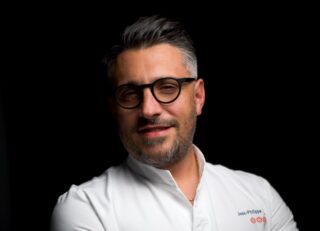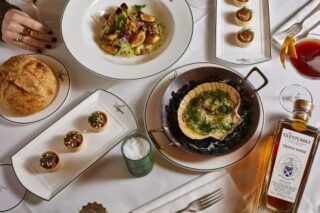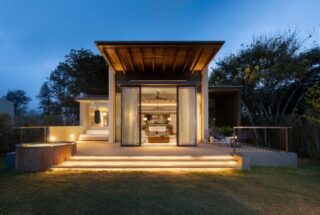This website uses cookies so that we can provide you with the best user experience possible. Cookie information is stored in your browser and performs functions such as recognising you when you return to our website and helping our team to understand which sections of the website you find most interesting and useful.
Interview: How The Conduit’s new rooftop restaurant Rucola is making luxury sustainable
By Shivani Dubey | 12 March 2024 | Food & Drink
We spoke to The Conduit’s global head of impact, Ruth Davison, about the restaurant’s marriage of luxury and sustainability and the women responsible for leading the charge
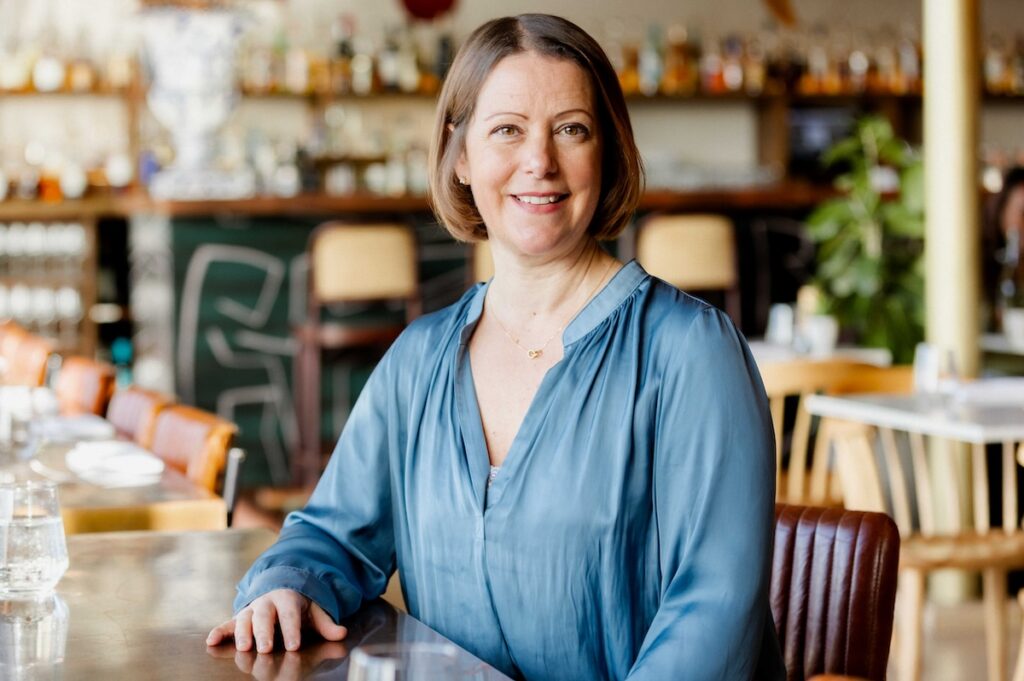 The Conduit, the luxury members’ club in the heart of Covent Garden, just opened its brand new rooftop restaurant, Rucola, which focuses on impact-led dining. The restaurant, which is inspired by northern Italian cuisine, has finally opened its doors in London and is an eco-conscious eatery that aims to make luxury sustainable by serving plant-forward dishes with beautiful views of London to match.
The Conduit, the luxury members’ club in the heart of Covent Garden, just opened its brand new rooftop restaurant, Rucola, which focuses on impact-led dining. The restaurant, which is inspired by northern Italian cuisine, has finally opened its doors in London and is an eco-conscious eatery that aims to make luxury sustainable by serving plant-forward dishes with beautiful views of London to match.
Rucola perfectly marries luxury and sustainability by providing a rich dining experience, while also making it very clear that it doesn’t compromise on sustainability. From the ethically sourced food ingredients to the restaurant’s tiles and decor — Rucola has made huge strides towards a holistic approach to sustainability and net carbon neutrality.
For International Women’s Day, we met with The Conduit’s global head of impact, Ruth Davison, to learn more about Rucola’s commitment to sustainable luxury and the women working behind the scenes to bring about this change.
Ruth, I wanted to talk about Rucola’s approach to sustainability, while also not compromising on luxury. What steps are you taking to make sure that The Conduit and Rucola are sustainable?
So at the top level, our goal is to actively be kind of a demonstration model of what is really possible in high end hospitality with absolutely zero compromise on sustainability, and we’ve worked out three core principles to drive that forward. The first is around net carbon neutrality — ensuring that we are taking a carbon emissions lens to everything, because for us that’s one of the most efficient ways to ensure you are constantly thinking about sustainability.
Then, alongside that, a zero waste mentality. Does it mean you’re just trying not to waste things? Yes, but also, it means you’re being careful in buying them in the first place. You’re careful in how you prepare and use anything you have, and then you think about at the end of its life, how can you send as little as possible to landfill. Third is plant forward menus. It’s better for our health as well as the planet. 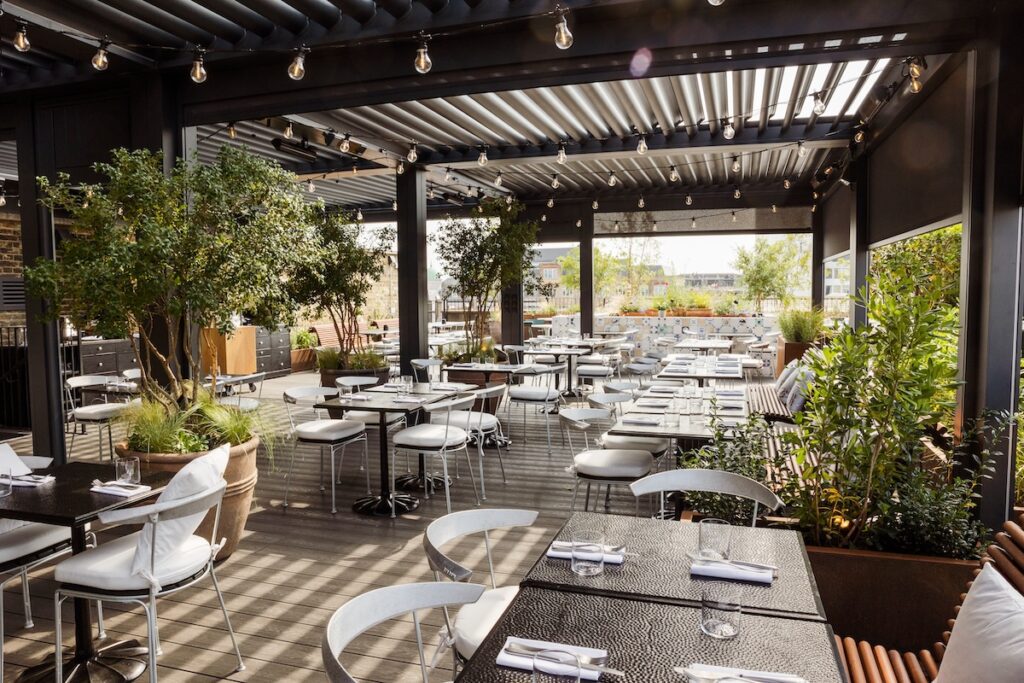 If you source more plants and vegetables in your menu, you are automatically reducing your carbon footprint, because the carbon impact of dairy meat and fish is significantly higher than vegetables. So taking that lens right across every decision we make is what we’re actually doing.
If you source more plants and vegetables in your menu, you are automatically reducing your carbon footprint, because the carbon impact of dairy meat and fish is significantly higher than vegetables. So taking that lens right across every decision we make is what we’re actually doing.
What makes Rucola stand out in this arena?
I think there are some other really brilliant sustainable restaurants. But I think what makes us stand out is that we’re part of this incredible private members club, which is about change makers, so something that we offer that no one else does is our incredible impact programming.
We have two to three brilliant program events running here every single night. Fix food, fix the planet is one of our big themes for this year, for our impact programming, and we’ll be really diving into not just what we’re serving at Rucola but the real challenges in our food system. You can come and have a delicious meal, and also get a bit of information about sustainability. So I think that educational option that you can take or leave sets us apart.
Can you tell me about the steps Rucola is taking towards sustainability in food and drink?
We’re sourcing brilliant, freshly pressed juices with organic ingredients that are great for your health. We serve them in recycled and recyclable plastic bottles, which might sound confusing. But we’re deliberately doing it to prompt that conversation, because it’s too easy to think that sustainability is really unappealing food, when in fact that is not true.
We work with Angry Monk, because the vegetables they’re sourcing have already made it to the United Kingdom — even things like mangoes, that are not always in season. So instead of the vegetables going into a landfill to be wasted, we’ve salvaged it effectively and diverted it away from there. And it means we’re sourcing non-seasonal, non-local ingredients, so it’s sustainable, but it also feels a little naughty at the same time.
Citizens of Soil, who are an astonishing female-led social enterprise, provide our olive oil. They also invest into regenerative agriculture, which captures carbon out of the atmosphere and locks it in through the processes they use to grow the olives. That is absolutely the high end of sustainability and luxury. They make no qualms about that.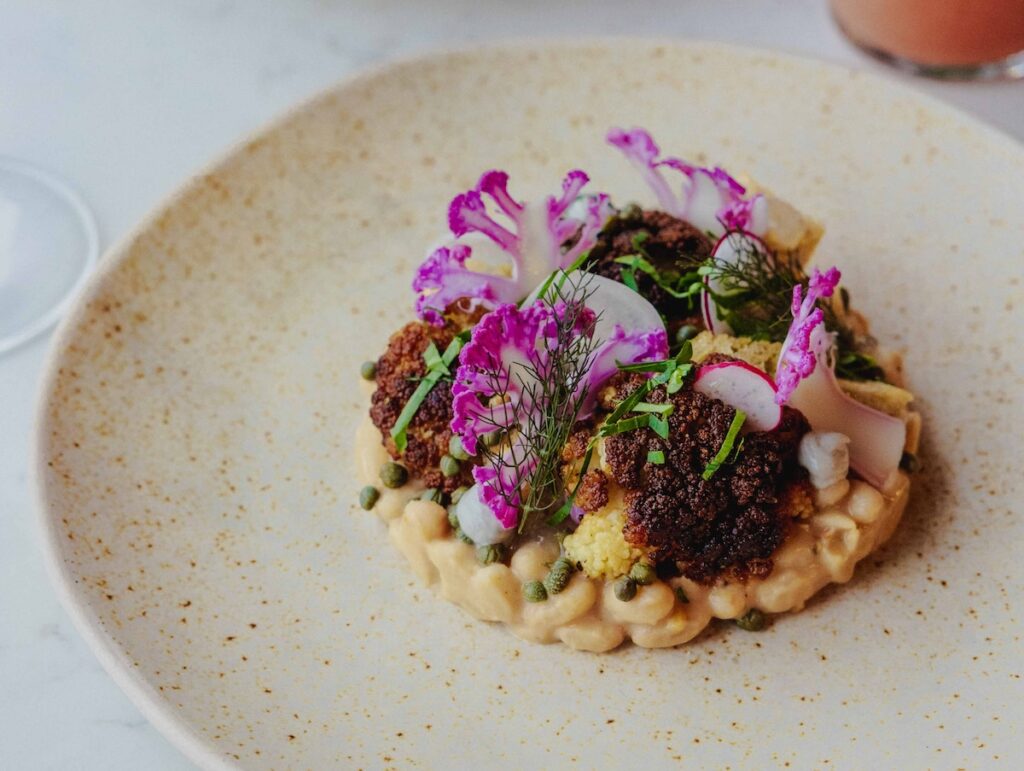 You mentioned that even the decor in Rucola is sustainably sourced. Can you tell me little bit about that?
You mentioned that even the decor in Rucola is sustainably sourced. Can you tell me little bit about that?
The plants in Rucola are sourced from a social enterprise called Glass House, which is an organisation that provides horticultural training to women who are in prison and then employs them when they’re released. So the way we’ve chosen to source them means we are giving new career opportunities, I hope, to women who are in the criminal justice system.
The tiles you see around the restaurant are handmade by female artisans in South Africa — whose skills were dying out actually, because there wasn’t really the demand for them. Everything you see and touch within Rucola whether it’s food, or the plants or the decor, has a sustainability perspective. It feels like there’s a thousand stories just there waiting to be told.
Have you seen any impact this approach with Rucola has had on the environment?
Carbon emissions come in three scopes: scope one, two and three. We almost have no scope one emissions — which are direct emissions — because we source all our own energy through renewable sources.
Hospitality and the food system accounts for a third of all carbon emissions globally. If we can showcase that you can [find ways to reduce carbon emissions] in hospitality, which is traditionally quite a tricky industry, without having to make the compromise on joy and delight, we can maybe usher a change in shifting narratives and shifting behaviour and ultimately create a different future for the planet.
How are you making sure sustainability is not an afterthought in the luxury space?
If you have got the ability to invest into something that is really delightful, you can invest in something that is really sustainable. Clearly, you can choose not to do that, but why would you? It is a myth to think that sustainability has to be uninteresting or unpleasant.
You would buy [a really good, sustainable brand] even if you didn’t care about sustainability — not everyone does — because you want something amazing. If you have to choose between doing what’s right and doing what’s fun, you’re going to choose kind of the desirable, fun thing. So if we can find more ways to make it desirable and accessible, sustainability won’t be an afterthought.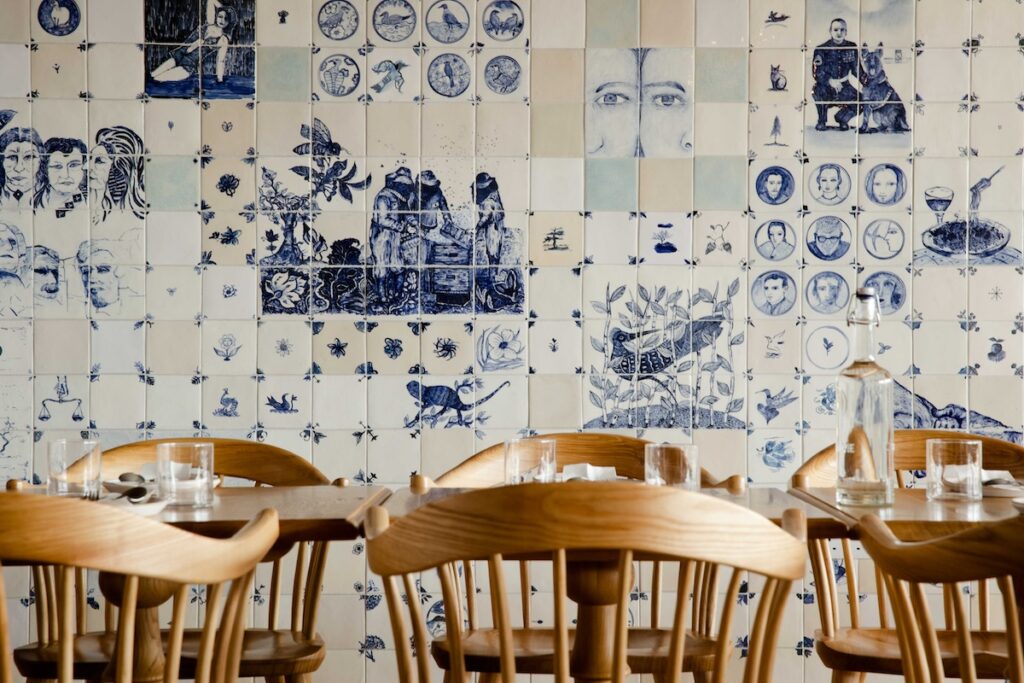 Are there any challenges that come with trying to be sustainable but also heavy luxury forward?
Are there any challenges that come with trying to be sustainable but also heavy luxury forward?
I think it does demand a bit more creativity. I’m not encountering many challenges here because the whole team is behind me, but the chef has had to be much more creative. Traditionally, we have barbecues on our rooftop terrace each summer, but actually the largest carbon emissions come disproportionately from beef.
It would be tricky for us to say we’re a net carbon neutral, plant forward organisation and then serve a very burger heavy barbecue. So this summer we won’t have any beef on our barbecues at all. Instead, there will be fish, lobster, and other plant-forward dishes.
And that was a challenging conversation because when we think of barbecues, we think about burgers, sausages and steaks. But we’re just finding ways to be creative while also serving delicious food.
Finally, are there any challenges that come with being the head of global impact especially from the perspective of being a woman?
My job as the head of global impact is to make sure that we are always on message — that we’re doing the things we say we’re doing. The other part is working out how I can make connections between some of the change makers in this club so they can scale and accelerate the solutions they have in the world with help from others.
The biggest challenge is probably just balancing time because as women, we’re also still carrying a disproportionate burden of caring at home. And in my age range, we’re carrying both for children and our older parents and we’re running these big jobs. Only 7% of the top roles in hospitality are held by females, even though we are a disproportionate part of the workforce, and I think that is a challenge.
We shouldn’t just be the waitstaff and the front of house staff, we should also be in leadership. And there’s a potential to be a demonstration model here at Rucola and The Conduit. There is a mix of leadership here and I think that is quite exciting to try and challenge stereotypes. But those are good challenges, aren’t they?


